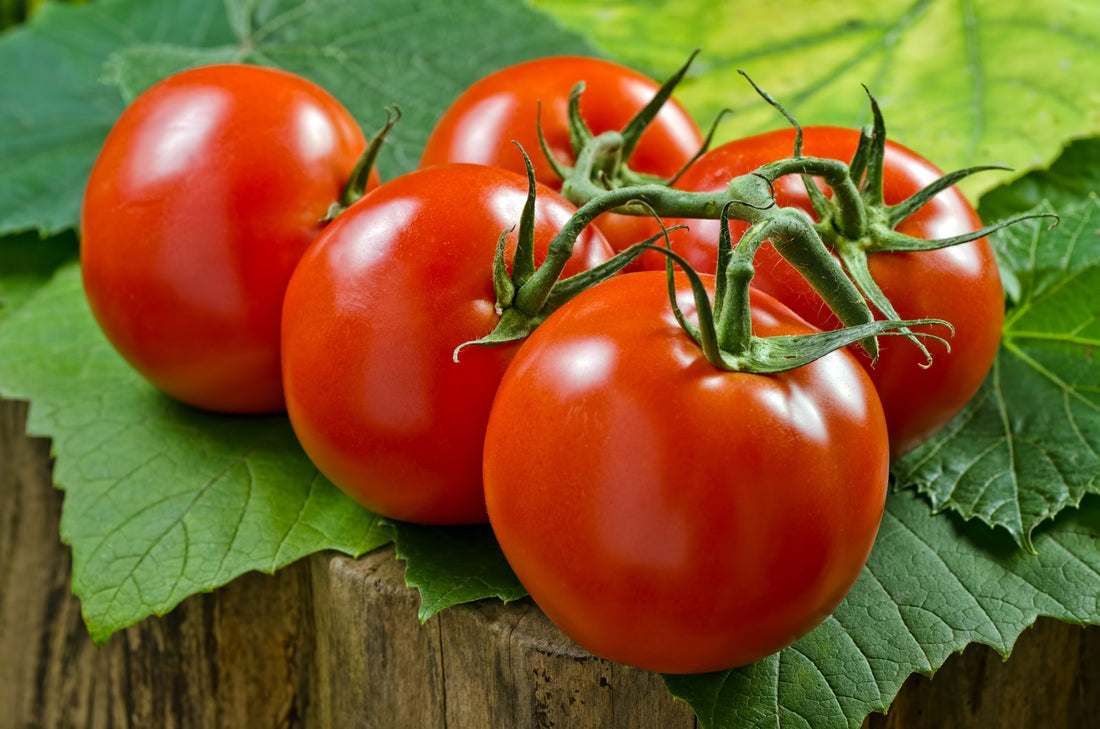Chickens are voracious eaters and are known to peck at anything that piques their interest. But as chicken keepers or enthusiasts, it's essential to know what's safe for these feathered creatures. One frequently questioned item is the humble tomato. Can chickens eat tomatoes? Let's delve into the details.
Tomatoes: A Juicy Delight or a Dangerous Treat?
Can Chickens Eat Tomatoes?
Yes, chickens can eat tomatoes! Ripe tomatoes are safe for chickens and can be a nutritious addition to their diet. They are rich in essential vitamins like vitamins A, C, and K, and contain beneficial antioxidants.
However, while the ripe fruit is a delightful treat, not all parts of the tomato plant are chicken-friendly.
Toxic Parts of the Tomato Plant
The tomato plant belongs to the Solanaceae family, which also includes other plants like potatoes, eggplants, and bell peppers. A distinguishing feature of many plants in this family is the presence of solanine, a naturally occurring chemical that acts as a neurotoxin when consumed in large quantities.
1. Green Tomatoes:
While a ripe tomato is a juicy treat, green tomatoes contain solanine, especially if they are still very immature. Consuming green tomatoes can lead to solanine poisoning, which can cause drooling, lethargy, gastrointestinal distress, paralysis, and in extreme cases, death.
2. Tomato Leaves and Stems:
The highest concentrations of solanine in the tomato plant are found in its leaves and stems. Thus, it's crucial to ensure that chickens do not have access to these parts of the plant.
3. Tomato Flowers and Roots:
Although not as commonly accessed by chickens, these parts also contain solanine and should be kept away from your flock.
Recognizing Solanine Poisoning in Chickens
While the occasional peck at a green tomato or leaf might not harm your chicken, consistent consumption can lead to solanine toxicity. Symptoms to watch out for include:
- Lethargy or weakness
- Drooling or salivation
- Dilated pupils
- Increased respiratory rate
- Paralysis
- Digestive distress
If you suspect your chicken has ingested a toxic amount of green tomatoes or tomato plants, it's essential to consult a veterinarian. They may recommend treatments to reduce the toxin's absorption or supportive care to help the chicken recover.
Safely Feeding Tomatoes to Chickens
Now that we know the potential dangers, how can we safely offer tomatoes to our flock?
1. Offer Ripe Tomatoes:
Only feed chickens fully ripe tomatoes. The redder and riper the tomato, the safer it is. It's also a good practice to cut the tomato into smaller chunks, making it easier for the chickens to eat.
2. Remove Access to Tomato Plants:
If you're growing tomatoes in your garden, ensure it's fenced or netted to keep curious chickens out. This will prevent them from nibbling on the toxic leaves, stems, or green fruits.
3. Monitor Quantity:
While tomatoes can be a healthy treat, they shouldn't replace a chicken's primary diet, which consists of pellets, grains, and other food sources. Offer tomatoes occasionally and in moderation.
Benefits of Tomatoes for Chickens
When fed safely, ripe tomatoes offer several benefits:
-
Rich in Vitamins: Tomatoes are packed with vitamins A, C, and K. These vitamins support immune health, vision, and blood clotting, respectively.
-
Antioxidant Properties: Lycopene, the pigment that gives tomatoes their red color, has antioxidant properties. Antioxidants combat free radicals in the body, supporting overall health.
-
Hydration: Tomatoes have a high water content, making them a hydrating snack, especially during hot summer days.
Tomatoes, when ripe and red, can be a delightful treat for your flock, offering both nutrition and hydration. However, the green parts of the tomato plant, including immature green tomatoes, leaves, stems, flowers, and roots, contain solanine and can be toxic to chickens. As responsible chicken keepers, it's crucial to strike a balance – offering the nutritious ripe fruit while ensuring our chickens don't have access to the toxic parts of the tomato plant. Remember, moderation is key, and a varied diet will ensure your chickens remain healthy and happy!

